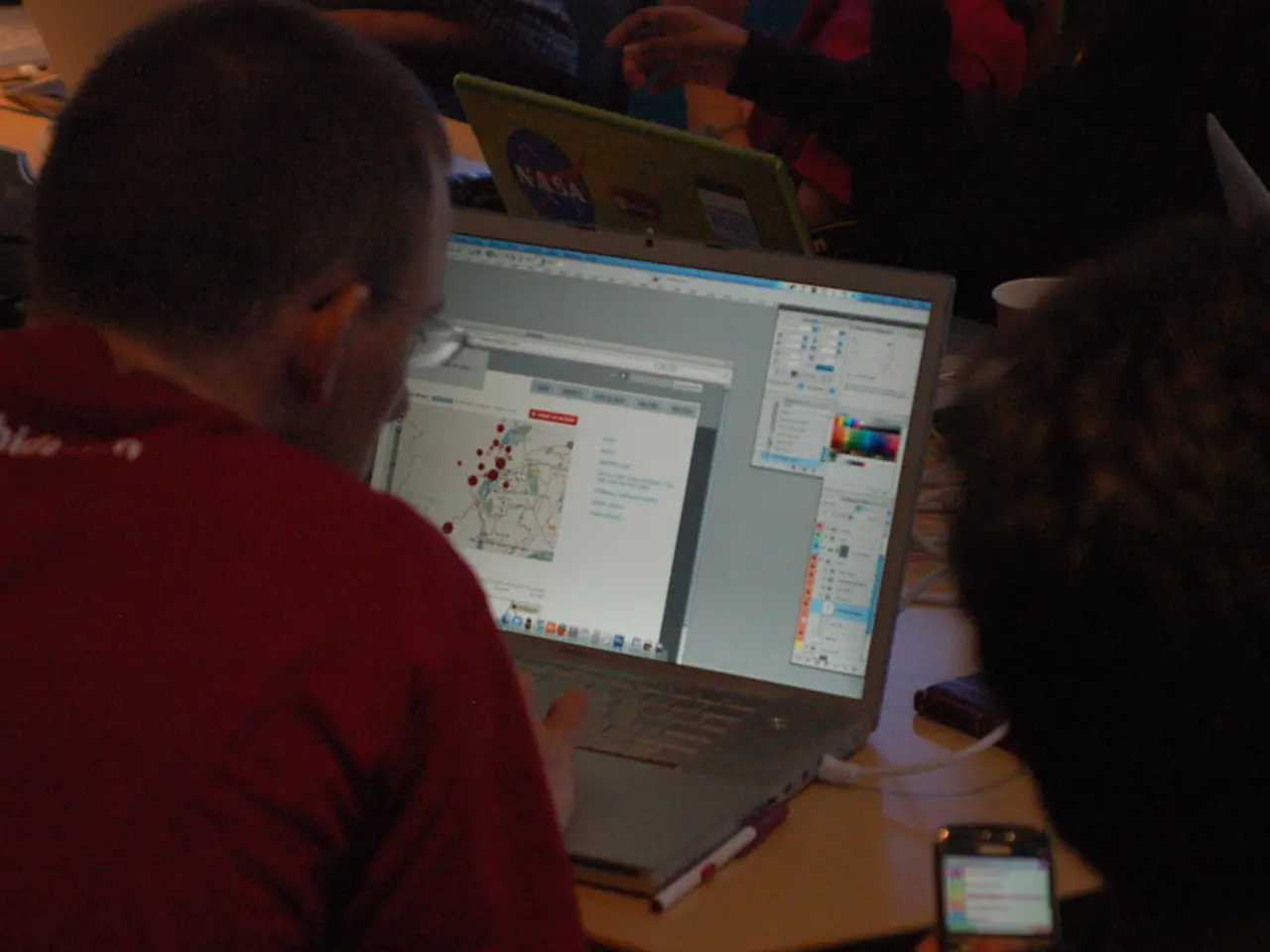Unforeseen Aftermath: The Risks of Leaving Your Mobile Device Untethered
In today's digital age, smartphones have become an integral part of our daily lives. However, a growing body of research suggests that having a smartphone visible on the table can have detrimental effects on attention, interpersonal relationships, and cognitive performance.
Attention
The mere presence of a smartphone on the table can serve as a distraction, even if it's not actively being used. This passive distraction can reduce focus on tasks or conversations at hand. Studies show that constant stimulation from screens prevents the brain from getting the downtime needed to process information adequately, reducing memory consolidation and attentiveness [2].
Interpersonal Relationships
Having a smartphone visible can undermine face-to-face interactions by shifting people from active participants to passive observers. This can weaken social engagement and reduce the quality of interpersonal communication. Smartphones foster social connectedness, but excessive or poorly timed use may hinder genuine in-person interactions [2][3].
Cognitive Performance
While regular active use of smartphones and digital technology can enhance certain cognitive functions, such as memory, executive functioning, and problem-solving through cognitive challenges and apps, passive exposure or over-reliance can lead to cognitive offloading where people reduce mental effort by relying on devices. This can diminish mental acuity over time [1][2][3]. However, training apps on smartphones also show benefits for older adults in cognitive maintenance and delay of decline, indicating that the effects depend on the type and context of usage [1][4].
In summary, having a smartphone physically present but not actively used often harms attention and interpersonal dynamics, while active, mindful use can benefit cognitive performance, especially in older populations using cognitive training apps [1][3][4]. The impact strongly depends on how the smartphone is used and whether it distracts from focus and social interaction.
Practical Risks and Social Implications
Placing a smartphone on the table can unconsciously distract attention, leading to decreased concentration. Studies indicate that having a smartphone within easy reach on the table during meals, meetings, or café visits can have far-reaching consequences. The smartphone on the table poses practical risks, such as increasing the risk of theft, and it can impair interpersonal relationships by making conversation partners feel less valued or heard.
Moreover, the presence of a smartphone on the table can lead to reduced cognitive performance in problem-solving and concentration tests. The possibility of an interruption due to a smartphone on the table can make conversations less emotional and connecting. Conversations can become less connecting when a smartphone is on the table due to the feeling that full attention is not being given.
The smartphone on the table can be easily damaged by mechanical impacts such as spilled drinks. The mere presence of a smartphone on the table can negatively affect your concentration, even if it is not actively used. Studies repeatedly show that people engage in less in-depth conversation when a smartphone is on the table, and cognitive performance can suffer, even if the smartphone is not actively used, due to its presence on the table.
In learning environments, the presence of a smartphone on the table can lead to worse processing of new information. The smartphone on the table promotes the spread of germs. The presence of a smartphone on the table can impair interpersonal relationships, and conversations can become more superficial due to the presence of a smartphone on the table. The presence of a smartphone on the table can create an invisible barrier that makes conversations more superficial and less personal.
In important conversations or meetings, having a smartphone on the table can signal that attention could switch to the device at any moment. Constant distraction by a smartphone on the table can weaken working memory and significantly reduce productivity. Therefore, it is essential to be mindful of the potential impacts of having a smartphone visible on the table and to use technology responsibly to maintain healthy attention, interpersonal relationships, and cognitive performance.
Read also:
- Stem cells potentially enhancing joint wellness and flexibility during aging process?
- Obtaining Ozempic: Secure and Legal Methods to Purchase Ozempic Online in 2025
- Bone and Cartilage Disorders: Categorizations, Signs, Remedies, and Prognosis
- Home-Based Methods and Natural Remedies for Managing Atherosclerosis







